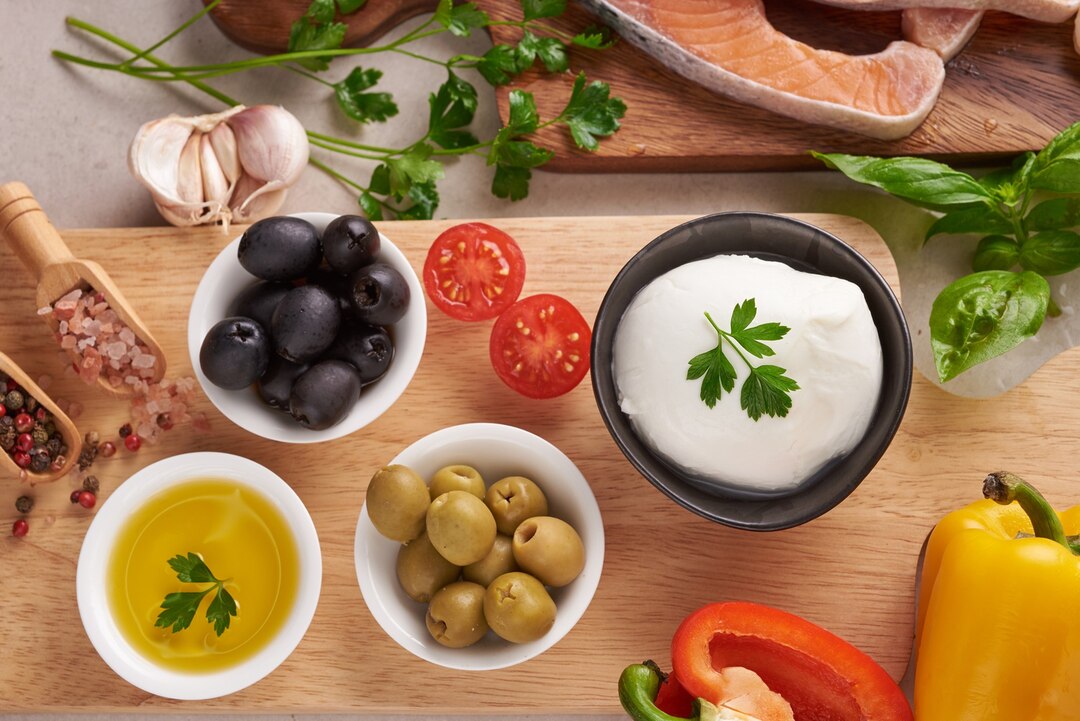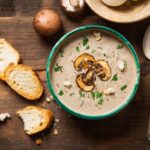The Mediterranean diet is celebrated for its health benefits, simplicity, and delicious flavors. Rooted in the traditional eating habits of countries bordering the Mediterranean Sea, this diet emphasizes fresh, whole foods, healthy fats, and a balanced approach to nutrition. Below is a comprehensive food list and a sample meal plan to guide you.
Food List
1. Vegetables
- Tomatoes, cucumbers, zucchini, eggplant, spinach, kale, and bell peppers are staples.
- Aim to include a variety of colorful vegetables in your meals.
2. Fruits
- Fresh fruits like oranges, apples, grapes, figs, and berries are encouraged.
- Dried fruits like dates and apricots can be enjoyed in moderation.
3. Whole Grains
- Whole-grain bread, pasta, brown rice, quinoa, barley, and bulgur wheat are key.
- Avoid refined grains and opt for minimally processed options.
4. Healthy Fats
- Olive oil is the primary fat used in cooking and dressings.
- Avocados, nuts (almonds, walnuts), and seeds (chia, flax) are excellent sources.
5. Legumes and Nuts
- Include chickpeas, lentils, beans, and peanuts in your diet.
- These are great sources of plant-based protein and fiber.
6. Fish and Seafood
- Salmon, sardines, mackerel, and tuna are rich in omega-3 fatty acids.
- Shellfish like shrimp and mussels are also commonly consumed.
7. Dairy Products
- Choose yogurt, cheese (feta, ricotta), and milk in moderation.
- Opt for low-fat or natural options without added sugars.
8. Protein
- Poultry and eggs are eaten sparingly.
- Red meat is limited, often reserved for special occasions.
9. Herbs and Spices
- Basil, oregano, rosemary, thyme, and garlic add flavor and antioxidants.
- Use them generously in cooking instead of salt.
10. Beverages
- Water is the primary drink.
- Red wine is consumed occasionally in moderation, usually with meals.
Foods to Avoid
- Processed snacks, sugary beverages, refined oils, and added sugars.
- Butter and margarine, as olive oil is the preferred fat source.
Sample 3-Day Meal Plan
Day 1
Breakfast: Greek yogurt with fresh berries, a drizzle of honey, and a sprinkle of chia seeds.
Lunch: Grilled chicken salad with mixed greens, cherry tomatoes, cucumbers, olives, and a lemon-olive oil dressing.
Dinner: Baked salmon with a side of roasted zucchini, eggplant, and quinoa.
Day 2
Breakfast: Whole-grain toast topped with mashed avocado and a poached egg.
Lunch: Lentil soup with a side of whole-grain bread.
Dinner: Grilled shrimp with a spinach and feta cheese salad.
Day 3
Breakfast: Oatmeal topped with sliced bananas, walnuts, and a drizzle of honey.
Lunch: Whole-grain pasta tossed with olive oil, cherry tomatoes, garlic, and basil.
Dinner: Grilled mackerel with steamed broccoli and a side of bulgur wheat.
Benefits of the Mediterranean Diet
- Heart Health: Rich in healthy fats, it lowers bad cholesterol levels.
- Weight Management: High fiber content promotes satiety.
- Longevity: Associated with a reduced risk of chronic diseases.
- Mental Health: Omega-3 fatty acids support brain health.
The Mediterranean diet isn’t just about food; it’s a lifestyle. It encourages mindful eating, sharing meals with loved ones, and staying physically active. Incorporating its principles into your daily life can lead to long-term health and well-being.








